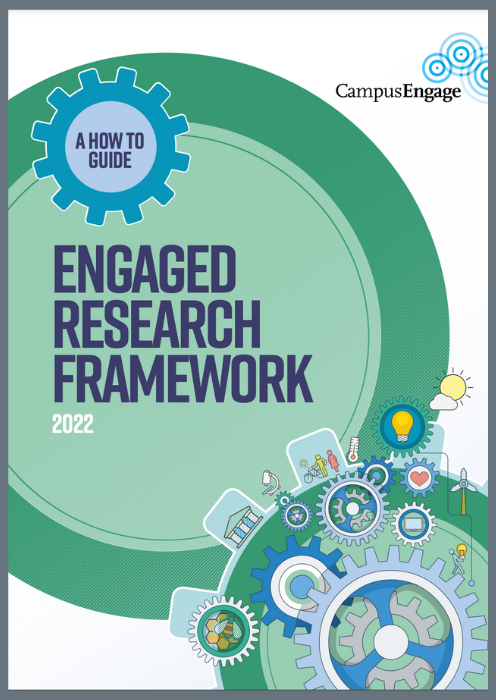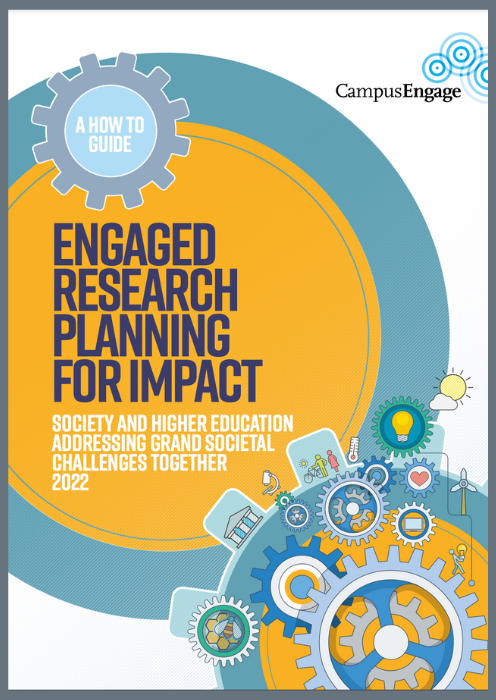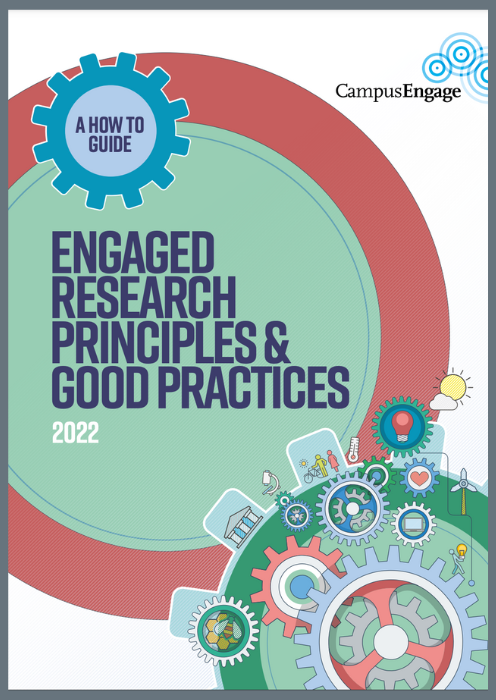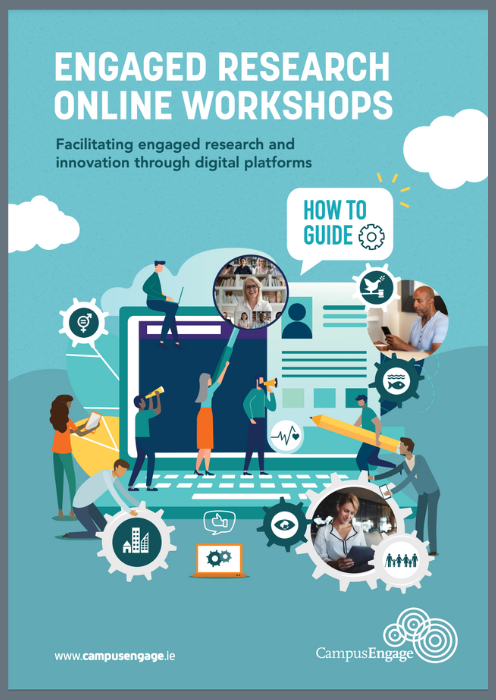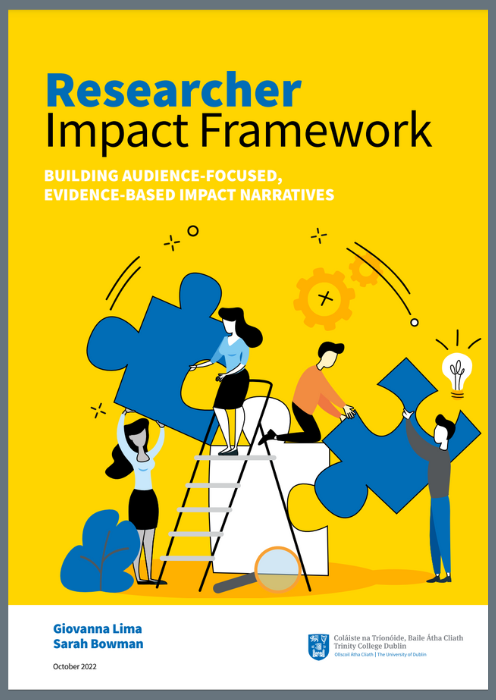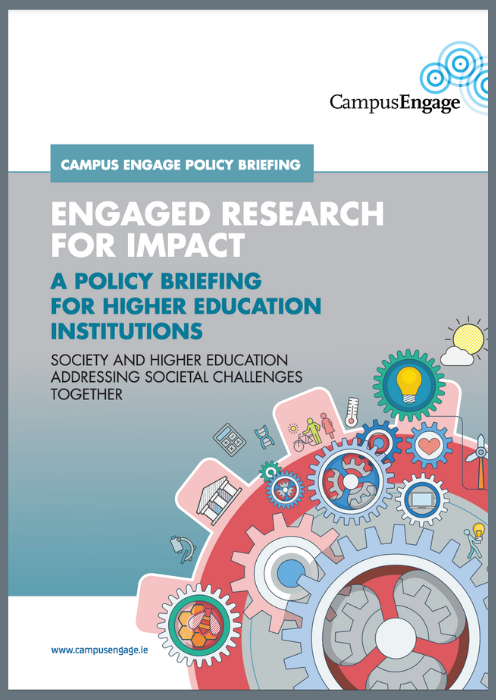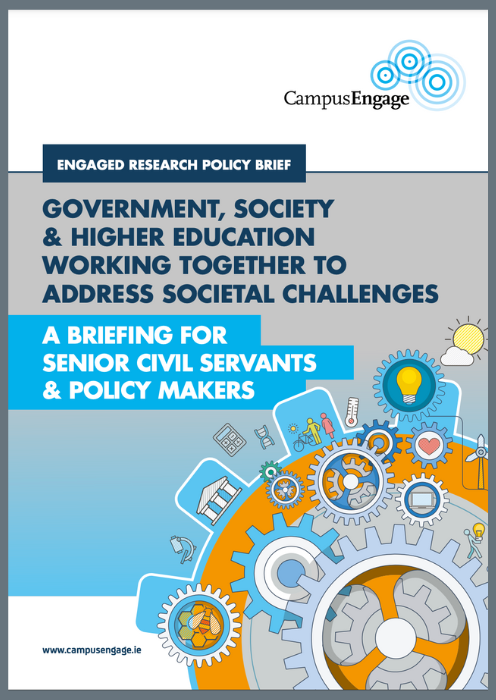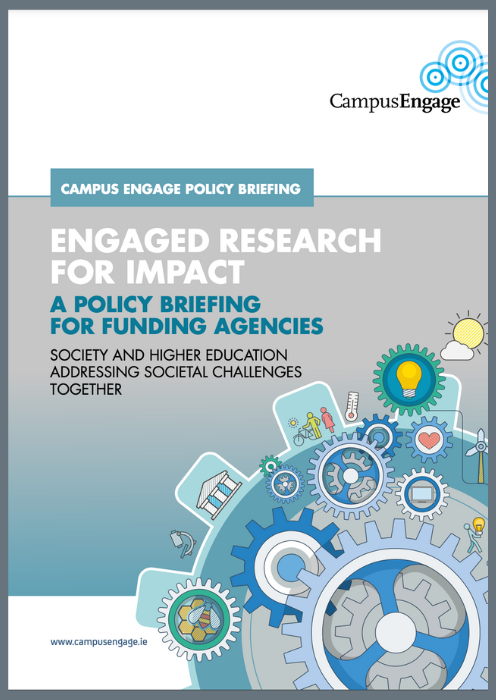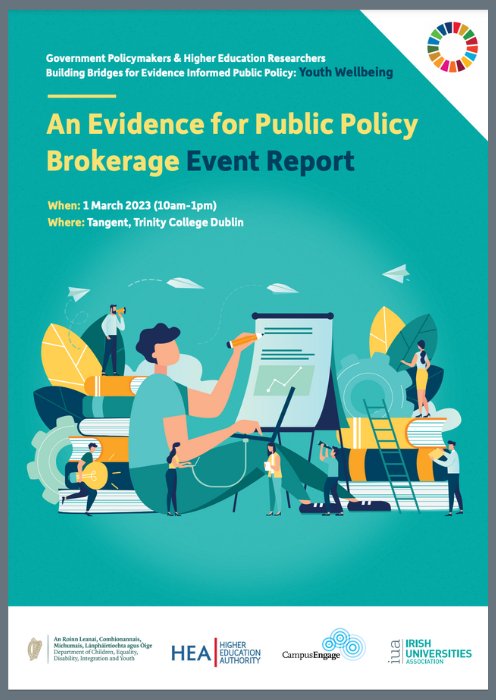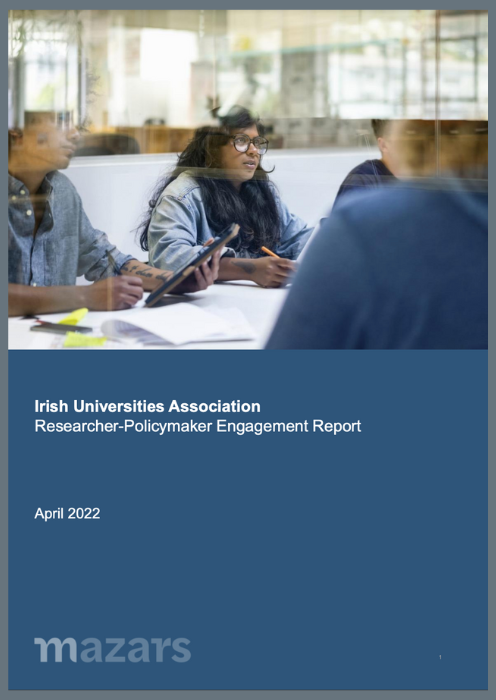IUA member universities are working to bring research beneficiaries together to address our greatest societal challenges. We all understand that when we work with service and product users, policy makers, patients, civic society and industry, research outputs are more likely to be of benefit to society and make real impact.
Resources - Engaged Research & Innovation for Societal Impact
Professional Training
Engaged Research & Innovation: Train the Trainer 6 Week Online Course
The primary objective of this course is to grow the pool of University Facilitators who can deliver the one-day workshop on Engaged Research for Societal Impact to researchers across Ireland. Attendees should have a key role in leading engaged research, innovation projects within their institution, building capacity for engaged research, planning for societal impact as part of their remit, or supporting researchers in maximizing the impact from research efforts.
Course Brochure: Train the Trainer 6 Week Online Course brochure
Video Introduction to Training: https://www.youtube.com/watch?v=A5_FY4AvBws
For more information and registration click here

Video Case Studies - Engaged Research & Innovation
Engaged Research for Net Zero – Dingle Peninsula:
Dingle is using the power of citizen science to reduce its carbon emissions by 50% in just under 10 years.Director of the MaREI Research Centre at University College Cork Professor Brian Ó Gallachóir, visits County Kerry to meet participants of Dingle 2030, a project that aims to make the region self sustainable in energy by 2030.
Farm Zero C
This week’s Case Study Video features Farm Zero C – a collaboration between BiOrbic, Carbery and other partners to address the challenge of carbon neutral farming. We will be joined by the Farm Zero C Team for Friday’s workshop. You can also learn more about Farm Zero C here: https://biorbic.com/farm-zero-c/
Engaged Research on Water Quality & Supply in Ireland
This case study was selected as it showcases thoughtful approaches to engaging and involving members of the public in research to give us a real time data on the health of the country’s fresh water supplies.
The Greentown Project: Breaking the Hold that Crime Gangs Have Over Children
A partnership between the School of Law at the University of Limerick, the Department of Justice, and the Department of Children, Equality, Disability, Integration and Youth. This research provides new insights into how criminal networks attract and confine children, encouraging and coercing them to be involved in serious crime and limiting their opportunities to escape their influence.
You can also learn more about The Greentown Project here: https://ulsites.ul.ie/law/greentown-project
National Intellectual Disability Memory Service.
Trinity College Dublin, Tallaght University Hospital, and AVISTA (previously known as the Daughters of Charity) signed a memorandum of understanding, in 2020, to develop Ireland’s first National Intellectual Disability Memory Service (NIDMS) as a pilot project. Supported by the Health Service Executive, National Dementia Office, and Department of Health, NIDMS was funded through the Dormant Accounts Disbursement Fund. While initially a trial clinic, the team successfully communicated their impact and permanent funding was provided by the HSE National Dementia Office to ensure NIDMS is now part of Ireland’s healthcare infrastructure, with two satellite clinics also added in the south and west.
Engage 2020 Action Catalogue
The Engage 2020 Action catalogue is an output from a project funded by the European Commission (DG Research) looking at research, innovation, related initiatives and exploring how members of society are involved in research and innovation process for positive societal impact.
The catalogue is an online decision support tool that is intended to enable researchers, policy-makers and others wanting to conduct inclusive research, to find the method best suited for their specific engaged research project needs.
You can learn more about the Action Catalogue here. You can read more about the Engage2020 project and find the Engage2020 Anthology eBook on the project webpage at: www.engage2020.eu
